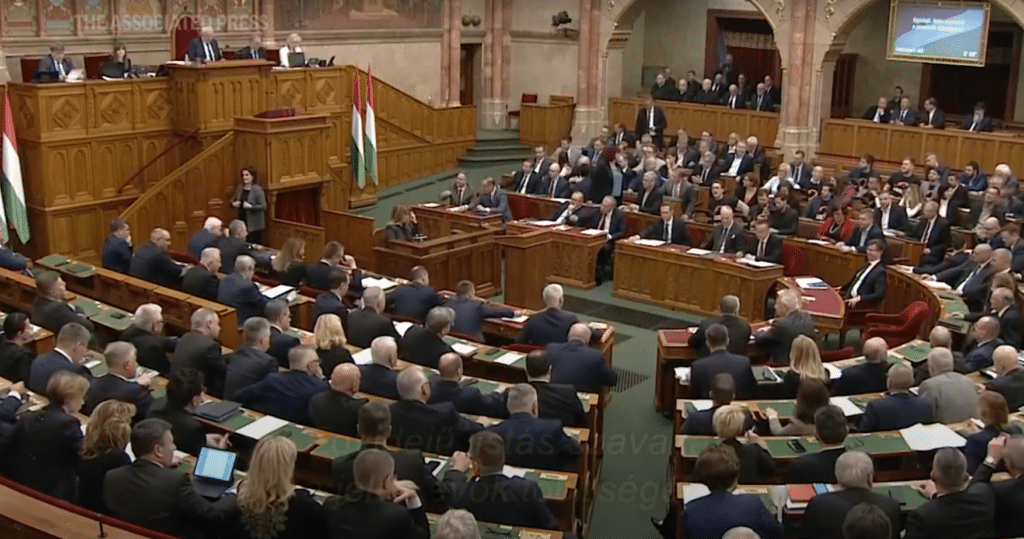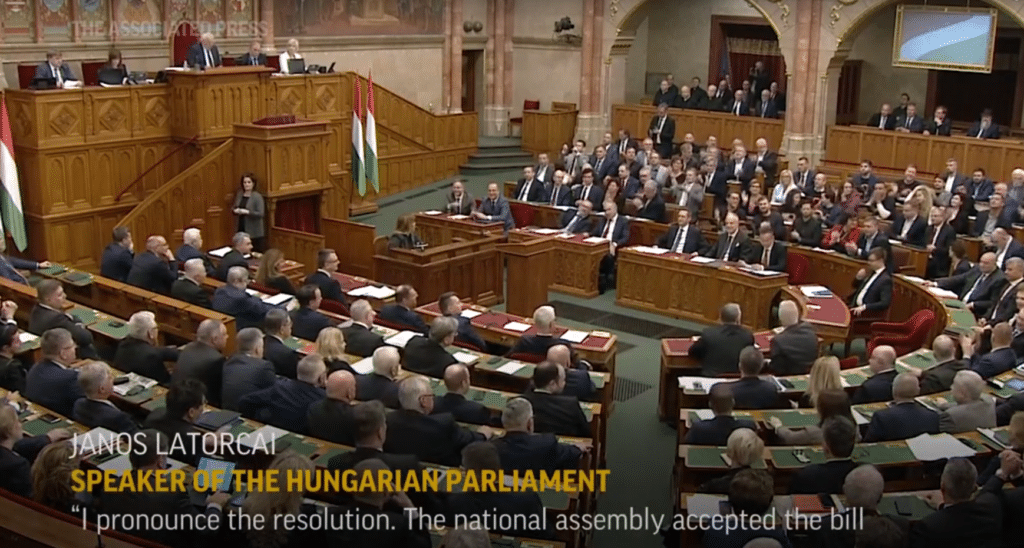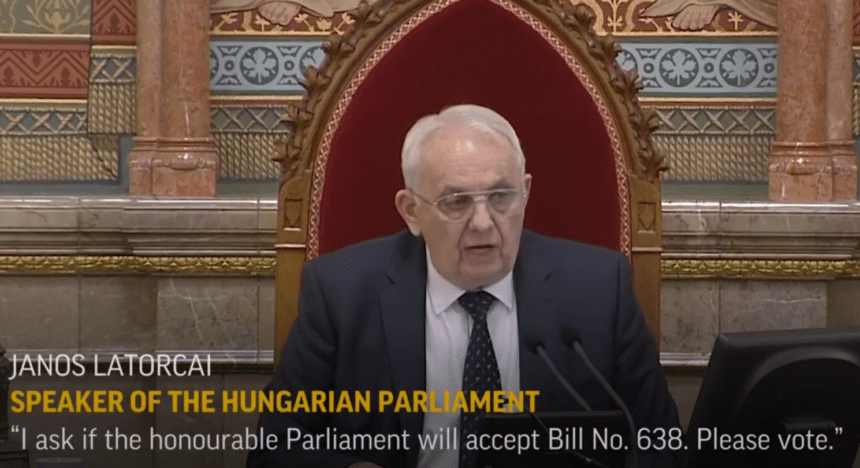Sweden joins NATO and has officially become the 32nd member of it, marking a pivotal moment in its foreign policy. After Hungary, the last holdout among the member countries held a parliamentary vote to approve Sweden’s accession, the path was finally clear for this significant move. This development not only solidifies Sweden’s position within the global military landscape but also deals a blow to Russia, which has been closely monitoring the situation.

A Shift in Foreign Policy Dynamics
The decision for Sweden joins NATO didn’t come overnight. In recent years, the geopolitical landscape, particularly Russia’s invasion of Ukraine, has prompted Sweden to reconsider its longstanding policy of military nonalignment. The specter of Russian aggression has pushed Sweden towards seeking the security and solidarity offered by the world’s largest military alliance. As uncertainty looms over NATO’s future, particularly with political shifts such as the potential withdrawal of security guarantees by influential figures like Donald Trump, Sweden’s decision to join carries significant weight.
Hungary’s Final Approval
Hungary, under the leadership of Prime Minister Viktor Orbán, played a pivotal role in Sweden’s journey towards NATO membership. Withholding approval for over 600 days, Hungary’s stance reflected not only its geopolitical considerations but also its diplomatic relations, particularly with Russia. However, with a resounding parliamentary vote of 188 to 6 in favor of Sweden’s accession, Hungary finally relented, marking the culmination of a long and intricate diplomatic process.
Implications for Russia

Russia emerges as a key player affected as Sweden joins NATO. Moscow has long viewed Sweden’s inclination towards the alliance, along with Finland, with apprehension. The tightening grip of the West on the Baltic Sea, coupled with increased NATO presence in the region, poses strategic challenges for Russia. Threats and retaliatory measures from Moscow highlight the tensions surrounding Sweden’s move and its potential repercussions for regional stability.
Sweden joins NATO: Historic Moment for Sweden
For Sweden, this moment signifies a historic shift in its defense and security posture. Prime Minister Ulf Kristersson hailed the decision as a significant step towards enhancing Euro-Atlantic security. With all existing NATO allies having ratified Sweden’s membership, the country is poised to contribute actively to the collective defense and security of the alliance.
Global Reactions and Acknowledgments
NATO Secretary-General Jens Stoltenberg and leaders from other member states welcomed Sweden’s accession, emphasizing the strength and security it brings to the alliance. German Chancellor Olaf Scholz highlighted the mutual benefits that all allies would reap from Sweden’s membership, underscoring the importance of solidarity and cooperation in the face of evolving security challenges.
A Shift in Diplomatic Dynamics
In a surprising turn of events, both Turkey and Hungary, after months of hesitation, softened their stance on Finland’s NATO membership and subsequently approved its application last March. The Turkish parliament’s approval of Sweden’s entry came later, following Stockholm’s tightening of anti-terror legislation and a pledge for closer cooperation with Turkey on security matters.
Orbán’s Reassurance and Hungary’s Support

Shortly after the Turkish vote, Hungarian Prime Minister Viktor Orbán assured NATO chief Stoltenberg of his government’s support for Sweden’s membership. Orbán, in his state of the nation speech on February 17, announced Hungary’s readiness to ratify Sweden’s accession at the beginning of the spring session of parliament. Government spokesman Zoltan Kovacs emphasized Hungary’s vested interest in Europe’s security, expressing confidence that Sweden’s membership would enhance NATO’s future prospects.
Concerns and Budapest’s Compliance
NATO allies had previously expressed concerns over Hungary’s reluctance to swiftly endorse Sweden joins NATO, fearing that Orbán’s delay tactics might align with Kremlin interests. However, recent developments suggest a shift in Budapest’s approach towards aligning with the bloc’s foreign policy objectives. Budapest’s decision to drop objections to an EU funding deal for Ukraine, despite having previously vetoed it, indicates a willingness to cooperate and support broader European initiatives.
Sweden’s Timely Entry Amidst Ukrainian Conflict
Sweden’s accession to NATO holds significant implications, particularly amid the ongoing conflict in Ukraine. With Russia making strategic gains on the battlefield and Western support for Kyiv showing signs of wavering, Sweden’s membership serves as a timely reinforcement of NATO’s solidarity and commitment to regional security. Furthermore, the geopolitical landscape, including the rise of populist sentiment in Western democracies, underscores the challenges in maintaining cohesive foreign policy objectives amidst domestic concerns.

